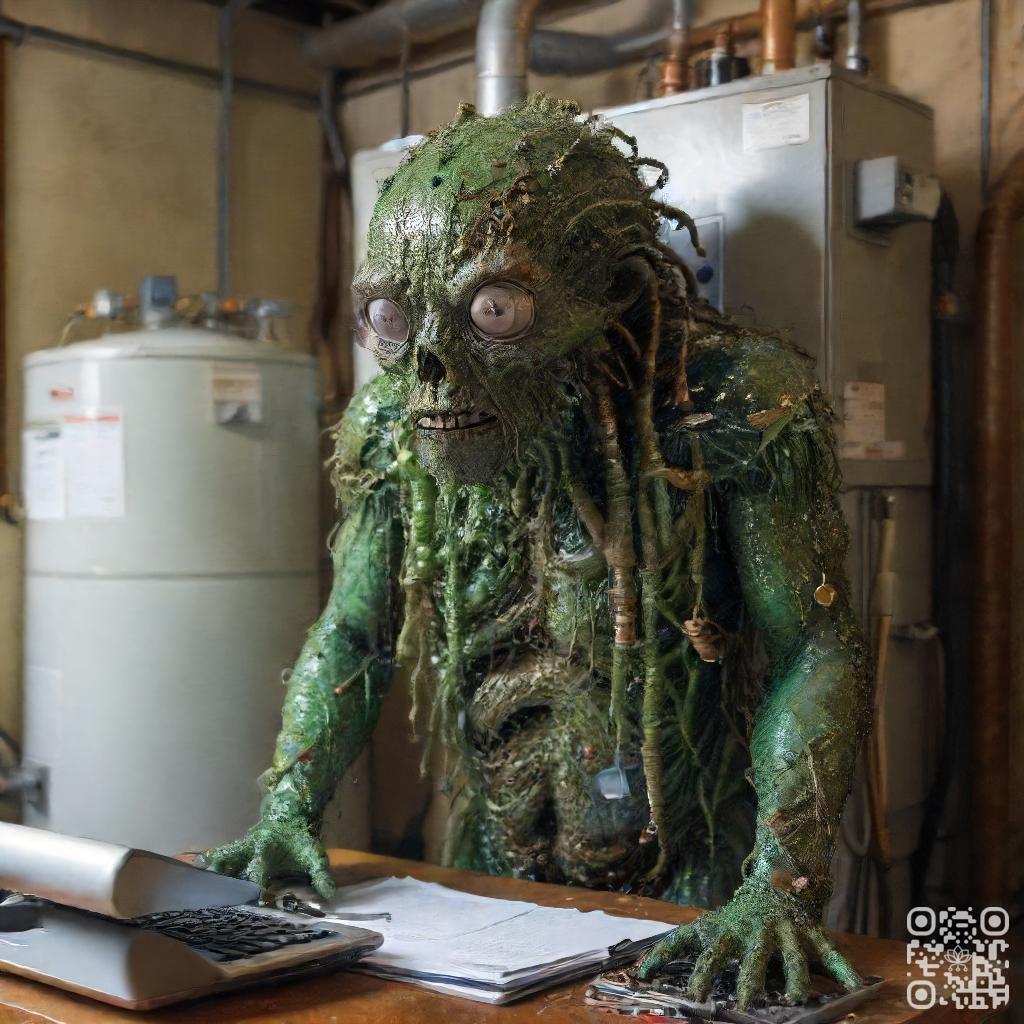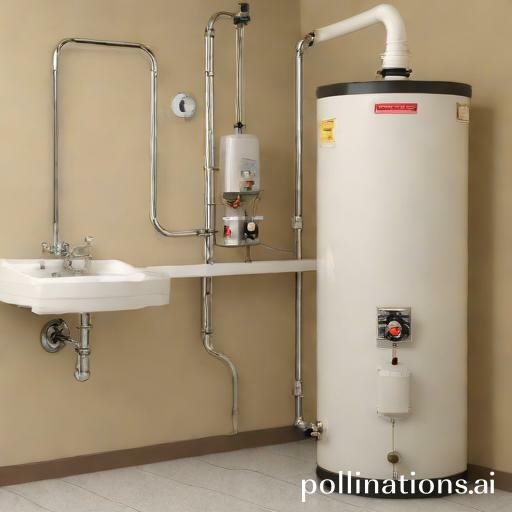
II. Insurance claims for water heater leaks can be complicated and require specific documentation and evidence to prove the extent of the damage and the cause of the leak.
III. It is important for homeowners to regularly maintain their water heaters to prevent leaks and to understand their insurance coverage to ensure they are adequately protected in the event of a leak.
Water heater leaks can be a frustrating and costly problem for homeowners. Not only do they cause damage to your property, but they can also lead to expensive insurance claims.
In this article, we will discuss the causes of water heater leaks, the potential damage they can cause, and how insurance can help cover the costs. By discerning the importance of addressing water heater leaks and the role insurance plays, homeowners can protect their homes and finances.
Causes of Water Heater Leaks
Water heater leaks can occur due to various factors. Mastering the causes can help you identify and address the issue effectively. Here are some common reasons why water heaters may develop leaks:
1. Age and Wear and Tear of the Water Heater
Over time, water heaters can experience wear and tear, especially if they are older models. The constant heating and cooling of the water can cause the tank to expand and contract, eventually leading to cracks or leaks. Regular maintenance and timely replacement of older units can help prevent this issue.
2. Sediment Buildup in the Tank
One of the main culprits behind water heater leaks is sediment buildup. Over time, minerals and debris can accumulate at the bottom of the tank, creating a layer of sediment. This sediment can cause the tank to overheat, leading to leaks or even tank failure. Flushing the tank regularly can help remove the sediment and prevent leaks.
3. Corrosion of the Water Heater Tank
Corrosion is another common cause of water heater leaks. The metal tank can rust over time, especially if it is exposed to moisture or corrosive elements. Rust weakens the tank, making it prone to developing leaks. Installing a sacrificial anode rod and regularly inspecting the tank for signs of corrosion can help prevent this issue.
4. High Water Pressure
Excessive water pressure can put strain on the water heater, causing it to develop leaks. If the pressure relief valve fails or the water pressure in your home is consistently high, it can lead to leaks in the tank or pipes. Installing a pressure regulator or adjusting the pressure relief valve can help alleviate this problem.
It’s important to address water heater leaks promptly to avoid further damage to your unit or your property. If you notice any signs of leaks, such as puddles of water or dampness around the water heater, it’s recommended to seek professional assistance for repairs or replacement.
| Cause | Solution |
|---|---|
| Age and Wear and Tear | Regular maintenance and timely replacement |
| Sediment Buildup | Regular tank flushing |
| Corrosion | Installation of sacrificial anode rod and regular inspection |
| High Water Pressure | Installation of pressure regulator or adjustment of pressure relief valve |
Signs of Water Heater Leaks
Water heater leaks can cause significant damage to your home if left untreated. Indispensable to be aware of the signs that indicate a potential leak in your water heater. By identifying these signs early on, you can take the necessary steps to prevent further damage and ensure the longevity of your water heater.
1. Water Puddles around the Water Heater
One of the most obvious signs of a water heater leak is the presence of water puddles around the unit. If you notice water pooling or dripping near your water heater, it is a clear indication that there is a leak. Ignoring this sign can lead to water damage, mold growth, and even structural issues in your home.
2. Discolored Water
If you turn on your hot water faucet and notice that the water is discolored, it could be a sign of a water heater leak. Rusty or brownish water indicates that there is corrosion happening inside the water heater tank, which is a common cause of leaks. Integral to address this issue promptly to prevent further damage to your water heater.
3. Unusual Noises from the Water Heater
If you hear strange noises coming from your water heater, such as popping, banging, or rumbling sounds, it may be a sign of a leak. These noises can occur when there is a buildup of sediment or minerals inside the tank, causing the water heater to work harder and potentially develop leaks. Getting your water heater inspected and serviced can help resolve this issue.
4. Reduced Hot Water Supply
If you notice a sudden decrease in the amount of hot water available in your home, it could be an indication of a water heater leak. Leaks can disrupt the heating process and result in a reduced hot water supply. If you consistently experience this issue, imperative to get your water heater checked by a professional to determine the cause and prevent further leaks.
Steps to Take When You Perceive a Water Heater Leak
In the realm of dealing with a water heater leak, it’s important to act quickly and take the necessary steps to minimize damage and ensure the safety of your home. Follow these steps to effectively address the issue:
1. Turn off the Power Supply
The first step in handling a water heater leak is to turn off the power supply. This is crucial to prevent any electrical hazards and reduce the risk of accidents. Locate the circuit breaker or the power switch connected to your water heater and switch it off.
2. Turn off the Water Supply
After securing the power supply, the next step is to turn off the water supply to your water heater. Locate the shut-off valve, typically located on the cold water pipe entering the water heater. Turn the valve clockwise to shut off the flow of water.
3. Drain the Water Heater Tank
Once the power and water supply are both turned off, it’s important to drain the water heater tank to prevent further leakage and potential flooding. Connect a hose to the drain valve at the bottom of the tank and place the other end into a suitable drainage location. Open the drain valve to allow the water to flow out.
4. Call a Professional Plumber
Whilst you may have taken immediate measures to handle the initial situation, it is crucial to call a professional plumber to assess and repair the water heater leak. A trained plumber will have the expertise to identify the cause of the leak and provide the necessary repairs or replacements to restore the functionality of your water heater.

Insurance Coverage for Water Heater Leaks
Water heater leaks can cause significant damage to your property, resulting in costly repairs. Fortunately, there are insurance coverage options available to protect you from these unexpected expenses. Grasping the types of insurance coverage available and how to file a claim can help you navigate this process smoothly.
1. Types of Insurance Coverage Available for Water Heater Leaks
In terms of insurance coverage for water heater leaks, there are a few options to consider:
- Homeowner’s Insurance: Many homeowner’s insurance policies provide coverage for water damage caused by sudden and accidental leaks. That being said, it’s essential to review your policy to determine the specific coverage limits and exclusions.
- Flood Insurance: If your water heater leak is a result of a flood, you may need separate flood insurance coverage. Standard homeowner’s insurance typically does not cover flood-related damages.
- Equipment Breakdown Coverage: Some insurance companies offer additional coverage specifically for equipment breakdown, which can include water heaters. This coverage can provide financial assistance for repair or replacement costs.
2. How to File an Insurance Claim for Water Heater Leaks
If you experience a water heater leak, it’s crucial to take immediate action to minimize damage and file an insurance claim promptly. Here are the steps to follow:
- Contact Your Insurance Company: Notify your insurance company as soon as possible to report the incident and initiate the claims process. They will provide you with the necessary forms and instructions.
- Document the Damage: Take photographs or videos of the water damage caused by the leak. This evidence will support your claim and help the insurance adjuster assess the extent of the damage.
- Provide Necessary Documentation: Fill out the claim forms accurately and provide any supporting documents requested by your insurance company, such as repair estimates, invoices, or receipts.
- Cooperate with the Insurance Adjuster: An insurance adjuster will likely visit your property to assess the damage. Cooperate fully and provide any additional information or evidence they may require.
- Follow Up: Stay in touch with your insurance company throughout the claims process. Keep records of all communication and follow up if there are any delays or issues.
3. Factors Affecting Insurance Coverage for Water Heater Leaks
Several factors can impact your insurance coverage for water heater leaks:
- Age and Maintenance: Insurance companies may consider the age and maintenance of your water heater when determining coverage. Regular maintenance and inspections can help prevent leaks and improve your chances of coverage.
- Policy Exclusions: Review your insurance policy to understand any exclusions related to water heater leaks. Some policies may have specific limitations or requirements.
- Deductibles and Coverage Limits: Your policy’s deductible and coverage limits will affect the amount of reimbursement you receive for repairs or replacements.
| Type of Coverage | Coverage Details |
|---|---|
| Homeowner’s Insurance | Covers sudden and accidental water damage caused by water heater leaks, subject to policy terms and conditions. |
| Flood Insurance | Provides coverage for water damage caused by floods, including water heater leaks. Separate policy required. |
| Equipment Breakdown Coverage | Specific coverage for equipment breakdown, including water heaters. Assists with repair or replacement costs. |

Preventing Water Heater Leaks
Regular Maintenance of the Water Heater
Regular maintenance of your water heater is crucial to prevent leaks and ensure its longevity. This includes inspecting the tank for any signs of corrosion or damage, checking the pressure relief valve, and flushing the tank to remove sediment buildup. By keeping up with regular maintenance, you can identify and address any potential issues before they turn into major leaks.
Installing a Water Pressure Regulator
High water pressure can put excessive strain on your water heater, leading to leaks and other problems. Installing a water pressure regulator can help regulate the pressure and protect your water heater. This device controls the incoming water pressure, ensuring it stays within a safe range. By maintaining optimal pressure, you can prevent leaks and extend the lifespan of your water heater.
Flushing the Water Heater Tank Regularly
Over time, sediment and minerals can accumulate in the water heater tank, causing corrosion and leaks. Flushing the tank regularly helps remove these deposits and keeps the tank clean. This can be done by turning off the power supply, connecting a hose to the drain valve, and draining the tank until the water runs clear. Regular flushing will prevent sediment buildup and reduce the risk of leaks.
Replacing the Water Heater When It Is Too Old
Even with regular maintenance, water heaters have a limited lifespan. If your water heater is too old, it may become more prone to leaks and other issues. It is recommended to replace your water heater every 10-15 years, depending on the type and condition. By replacing your old water heater, you can ensure optimal performance and minimize the risk of leaks.
To further assist you in mastering the importance of preventing water heater leaks, here is a table outlining the average lifespan of different types of water heaters:
| Type of Water Heater | Average Lifespan |
|---|---|
| Conventional (Storage Tank) | 10-15 years |
| Tankless | 20+ years |
| Heat Pump | 10-15 years |
| Solar | 20+ years |
Bottom Line
Water heater leaks can cause significant damage to your home and personal property. Essential to regularly maintain your water heater and promptly address any leaks to prevent further damage. If you do experience a water heater leak, imperative to contact your insurance company as soon as possible to file a claim and receive the necessary coverage for repairs or replacement.
In the course of insurance policies may vary, most standard homeowners insurance policies will cover water damage caused by a sudden and accidental water heater leak. Nevertheless, vital to review your policy and understand your coverage limits and deductibles. By taking preventative measures and assimilating your insurance coverage, you can protect your home and personal property from the costly effects of water heater leaks.
Read More:
1. Leaks And Their Impact On Water Heater Noise
2. How Leaks Affect Water Heater Resale
















